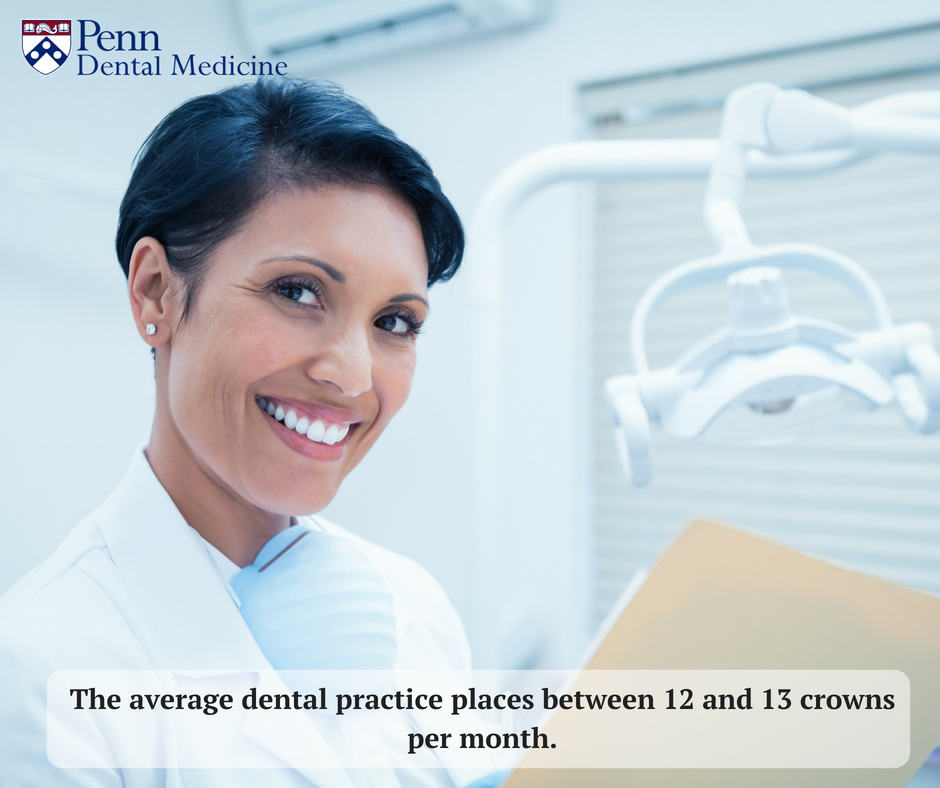Information Library
Start Reading

Are you worried you might have a chipped crown in your mouth?
Maybe you bit into a cookie that was crunchier than you expected. Maybe you grind your teeth. Or maybe you tripped and fell on your face.
Often, a chipped crown causes no pain. However, you may feel its newly rough or sharp edges with your tongue. You might experience increased sensitivity to hot or cold food and drink. You might even spot a visible crack in the crown when brushing your teeth.
Whatever the circumstances and symptoms, if you need dental crown repair, here’s what you need to know to keep the problem from becoming worse.
 A dental crown is a “cap” placed over a tooth to restore its shape, size, strength, and appearance. Dentists place crowns when damage to a tooth is too great for a dental filling to properly restore functionality.
A dental crown is a “cap” placed over a tooth to restore its shape, size, strength, and appearance. Dentists place crowns when damage to a tooth is too great for a dental filling to properly restore functionality.
If you’ve had a cavity, a dental crown can protect the tooth from future problems. In cases of tooth fracture, a crown can hold the tooth together.
Dental crowns are made of different materials, including:
Most dental crowns should last between five and 15 years. The fragility of porcelain crowns means they may need replacing more often.
 Yes—dental crowns break. The most common causes include:
Yes—dental crowns break. The most common causes include:
Additionally, poor oral hygiene can lead to tooth decay and weakened teeth, making them more prone to chipping.
 As soon as you realize you have a chipped crown, examine the affected area for any missing pieces. If you’re bleeding from the broken crown or tooth, apply a piece of gauze.
As soon as you realize you have a chipped crown, examine the affected area for any missing pieces. If you’re bleeding from the broken crown or tooth, apply a piece of gauze.
Then, call your dentist immediately for professional guidance. Tell them all you know about how the break happened. Mention any sensitivity to cold or heat you may be feeling.
Based on the information you provide, your dentist can determine whether you need to go directly to an emergency room or whether you can wait for treatment. Generally speaking, unless the damage is a jagged break causing you pain, waiting a day or two is safe.
Dentists don’t generally recommend pulling a loose crown off the tooth. In cases when accidentally swallowing the crown is possible, however, they may advise pulling it off.
Rinsing your mouth with warm, salty water is a good practice. The rinse will calm any inflammation the accident caused.
The answer is yes, with some limitations.
People frequently chip porcelain crowns. While dentists use several methods to make porcelain crowns, bridges, and veneers, each technique requires heating the porcelain to very high temperatures.
Dentists with a high level of expertise and the best porcelain repair materials perform this procedure through composite bonding. When repair is necessary, dentists bond a composite resin to the porcelain. A composite is the same material used in fillings and bonding.
This procedure is not one most dentists commonly perform. Some will be unable to do it because it requires keeping a specific porcelain repair kit in stock. Should you need repair, then, choose a dentist with an established reputation for knowing how to fix a chipped crown.
In some cases, however, fixing a broken crown may not be cost-effective or possible. In such cases, you’ll most likely have to accept the need to invest in a new crown.
Penn Dental Medicine (PDM) repairs chipped crowns for patients whose situations meet certain requirements. We will help you determine the best steps to take and schedule you for a prosthodontist appointment if you are a candidate for this procedure.
We operate out of the University of Pennsylvania School of Dental Medicine. Our student dentists have access to high-grade materials and advanced technology many private practices cannot keep on hand.
Take advantage of our expertise, state-of-the-art technology, and affordable pricing. Please call our office at 215-898-8965 and explain you’ve had a dental accident.
If you want more information about all the low-cost dental services we provide, download our free eBook, Dental Work Without the Stress.